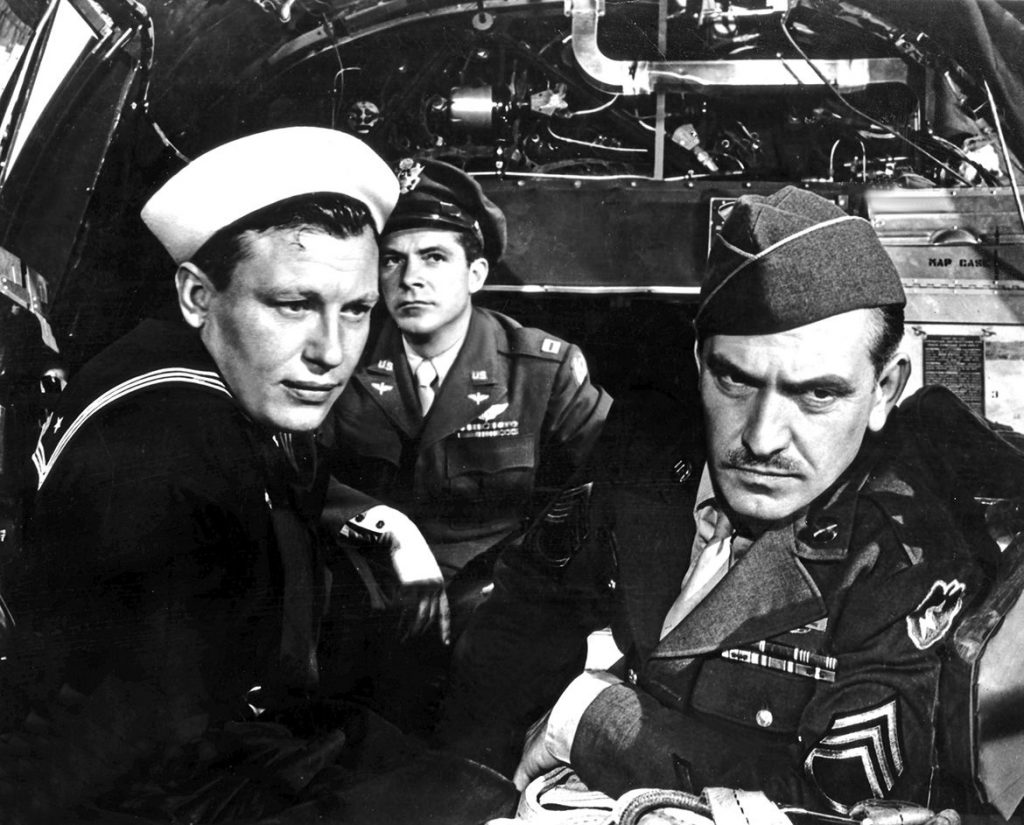War has been a constant theme in literature — from the Bible to the “Iliad” and beyond — and modern storytellers have used it as a backdrop to tell all manner of stories about sailors, soldiers, airmen and Marines.
Television was more densely populated with war themed series like “Twelve O’Clock High” and “Combat” when I was a kid. Reruns of “Combat,” the show that had completely grabbed my imagination, recently made a return to the airways, and having watched some of the episodes I have to admit it still holds up.
As a child I would suffer through the boring talking bits and wait for the end of Act I action, end of Act II dilemma, end of Act III action and end of Act IV climax. Looking at some of these episodes with a slightly more adult point of view, I now see “Combat” was really making a pretty good attempt at showing some of the complexities of human relationships in the midst of the inhumanity of warfare.
Any television or motion picture adaptation of real life accounts of war will always to fall short. No matter how permissive the standards become when showing blood and horrors, and no matter how nuanced and modern the patinas become of which characters are painted, the real ghastliness of war can never be fully understood.
Despite the limitations, there have been a lot of good war films and television shows — usually centered around the last “good” war, WWII, where the lines of good and evil and nobility of cause appeared so clearly defined. There was nuance and gray area there as well, just ask a WWII vet who was there in either theater.
Yet the template of evil that was embodied by Nazi Germany and Imperial Japan has always proven to be fertile ground to anchor a melodrama.
Vietnam, the war which I grew up surrounded by, changed war movies forever. The easily identifiable lines of demarcation were forever blurred and the fact this war came of age just as America convulsed in social and cultural upheaval rang the death knell on the hero as hero.
Even John Wayne couldn’t save it with his Vietnam movie “The Green Berets.” Actually, that movie is a lot like the real Vietnam War, i.e. it went on too long and didn’t have an ending.
There are no great action sequences in “The Best Years of Our Lives.” In fact, there are no action sequences and nothing but “boring talking parts.”
Fortunately I came to this film in my post-“Combat” period where I was hungry for more mature and complex material. This 1946 film by director William Wyler is about three WWII vets returning to idyllic Hometown, USA.
One vet bears in graphic display the physical damage war inflicts. All three men bear the deep emotional and psychic pain it embeds as well. It is a film about post traumatic stress disorder before anybody knew what it was.
Harold Russell renders one of the most powerful performances in this film. He was not an actor. He was a veteran who lost both hands up to his elbows in the war. He played Homer, the hometown high school athlete who only wanted to return to his high school sweetheart and start a life.
One thing is clear in this film, the sacrifice these men made — and these are the “survivors,” mind you — is total and with them the rest of their lives. That fact alone makes it one of the most realistic depictions of the true ravages of war on film.
The WWI-based film “Paths of Glory,” staring Kirk Douglas as a conflicted French infantry officer ordered to send his men over the top on a suicide mission on orders from a vain and ambitious Colonel, is not exactly a flag waver. But guys in trenches don’t wave flags. They try to survive and try to help the guy next to them.
This 1950s era seminal anti-war film has a stark and desperate beauty, speaks to corporate cowardice and personal integrity in big ways. The second part of the film morphs into a courtroom drama with just as much life and death in the balance and if you don’t tear up during the last scene in the film then check your pulse.
I’m no expert on the Augustinian theory of Just War. There will be just wars and unjust wars to come. I am expert enough on my belief in original sin to feel qualified to state whatever the nature of future conflicts, men will fight them and men will die.
We should all thank living vets for their sacrifice, remember the fallen and pray for peace. For as well done as any war movie has ever been or ever will be, it cannot truly convey the nature of the terrible sacrifice we remembered on Memorial Day.

